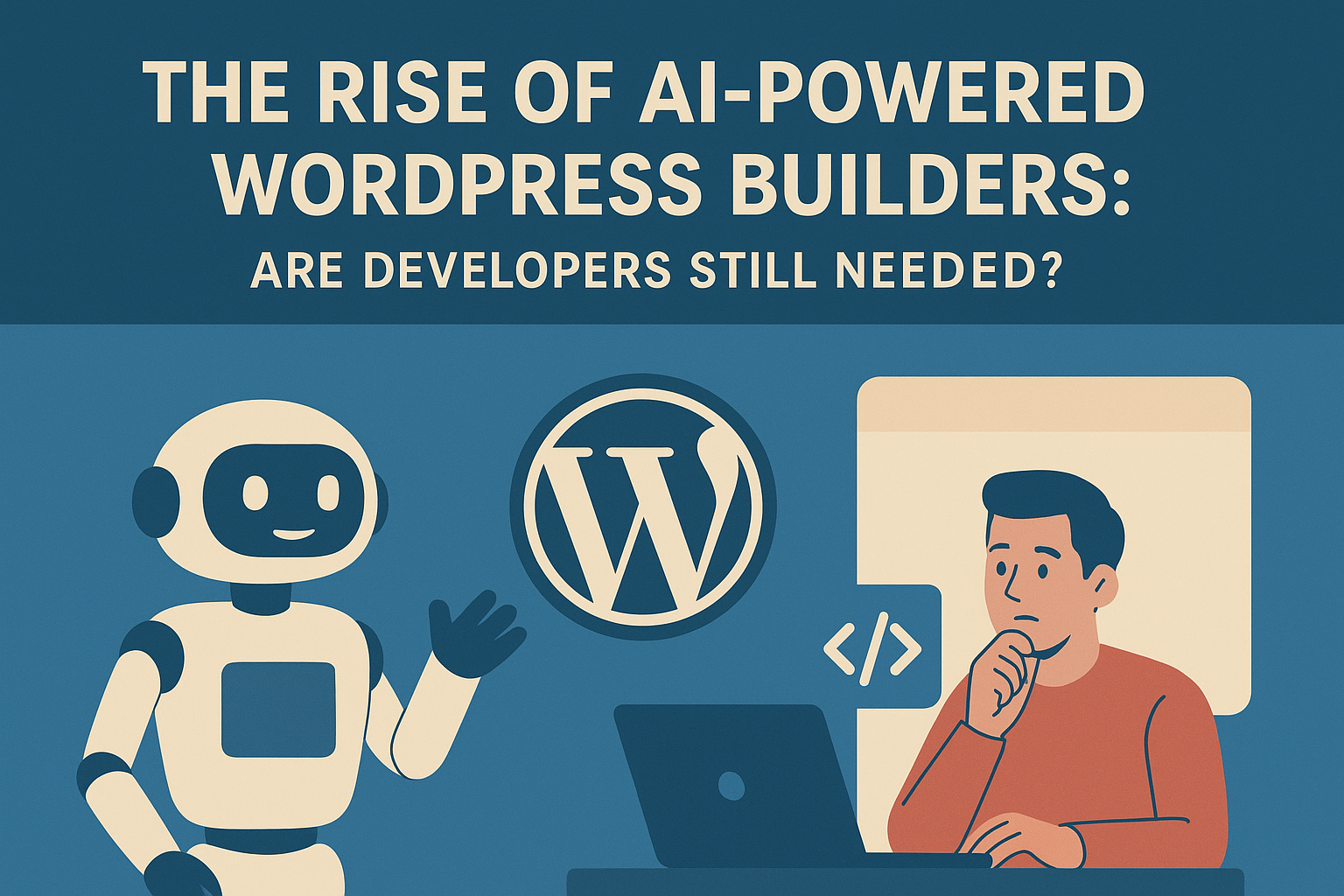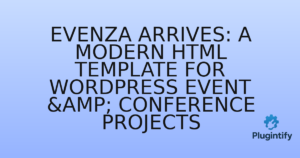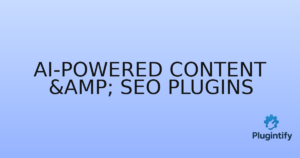The Rise of AI-Powered WordPress Builders: Are Developers Still Needed?
Introduction
Artificial intelligence is revolutionizing every aspect of web creation — and WordPress is no exception. With the rise of AI-powered page builders and smart design assistants, creating a website has never been faster or more accessible. But as automation takes center stage, one question keeps coming up: Are developers still necessary?
Let’s explore how AI is transforming WordPress development, what it means for designers and coders, and where humans still have the edge.
🤖 1. The New Era of AI Website Builders
AI-powered WordPress builders like 10Web.io, Elementor AI, and Divi AI can now generate complete websites from a few text prompts. These systems use machine learning to analyze industries, color schemes, and layout trends to create ready-to-launch websites in minutes.
Users can describe their business — for example, “a modern portfolio site for a freelance designer” — and the AI builds an optimized structure, selects matching typography, and even fills in demo content.
⚙️ 2. How AI Is Changing the WordPress Workflow
AI isn’t replacing WordPress — it’s integrating directly into it. From automated content creation to code generation, AI helps both developers and beginners work faster.
- Design automation: Tools like Elementor AI generate responsive sections and headers.
- Code assistance: AI can write or fix PHP, CSS, and JavaScript inside the editor.
- SEO optimization: Plugins such as Yoast SEO and Rank Math use AI to improve search visibility.
This integration makes development more efficient, but also shifts the focus from technical coding to strategic customization.
💡 3. The Human Touch Still Matters
While AI builders excel at speed and efficiency, they lack creative intuition and deep problem-solving skills. Developers still play a crucial role in:
- Building custom plugins or APIs
- Ensuring performance, security, and scalability
- Creating unique user experiences beyond templates
AI can generate a website, but humans give it purpose, personality, and strategy.
🚀 4. From Coders to Architects: The New Developer Role
The future developer isn’t just a coder — they’re a system architect who leverages AI tools to deliver better results faster. WordPress professionals will focus on:
- Integrating AI APIs and custom models
- Automating client workflows
- Building smart dashboards and analytics features
Instead of competing with AI, developers will collaborate with it to build smarter, data-driven digital experiences.
🧠 5. Ethical and Ownership Challenges
As AI becomes more involved in web creation, ethical questions arise — who owns the code, design, or content generated by AI? WordPress’s open-source GPL license ensures transparency, but AI-generated assets may not always follow the same rules.
Developers must stay informed about licensing and privacy implications when integrating AI tools into client projects.
📈 6. What’s Next for WordPress and AI
AI won’t eliminate developers — it will empower them. In the coming years, expect to see:
- AI-assisted full-site editing directly in Gutenberg
- Predictive design based on user behavior data
- AI-powered maintenance that fixes bugs and updates automatically
The key advantage of WordPress remains its flexibility — and now, AI is adding intelligence on top of it.
🎯 Conclusion: Collaboration, Not Replacement
AI-powered builders are making web creation faster and more accessible than ever, but they don’t eliminate the need for human creativity. Developers who adapt, learn, and integrate AI into their workflow will thrive in this new era.
The future of WordPress isn’t no-code or AI-only — it’s human + AI collaboration.
For more on AI and WordPress innovation, visit Plugintify.com.




